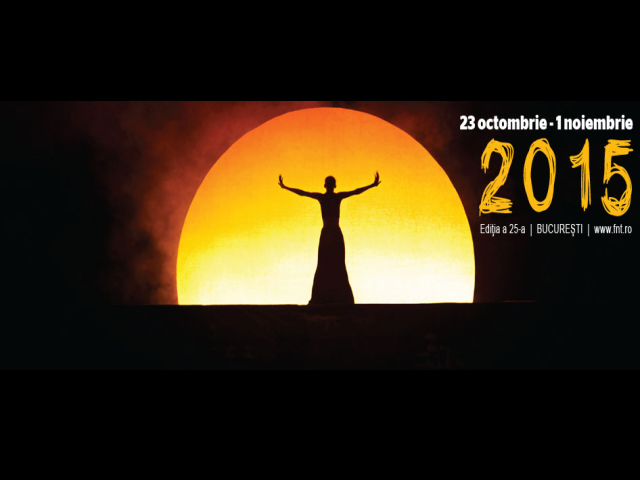Being an Actor in 2015 Romania
What is the condition of actors in 2015 Romania?

Ștefan Baciu, 28.10.2015, 13:03
October 2015 is rich in stage events, more than any other October of any other year. Many festivals have come up with state theatre performances and independent theater shows, actors who have been famous for a very long time, as well as budding actors. These days, in theatre halls, at the National Theatre Festival which is in full swing, there are very many young actors, or drama students, who are part of the audiences watching the plays on stage. You cannot help wondering, as you see them, which road they will be taking and what the condition of actors is in 2015 Romania? It appears that right now we stand where the western world used to be 40 or 50 years ago. This is what theatre critic Cristina Modreanu believes:
Cristina Modreanu: “Were on a certain path, hopefully the right one. But the system is at a deadlock, at least as regards the world of theatre, a deadlock which means that for several generations now, the young actors who are graduating, at least 150 of them per year, no longer find their places in theaters, as vacancies are blocked. This means that there are many such graduates, who are freelancers in theory, in a system where freelancers are not encouraged at all, in legal terms or in terms of resources. It is very hard to work “completely on your own, because there are not enough resources for this parallel world that has been created in time. I believe the point here is that there is no harmonization between the education system churning out stage artists, and the performing institutions that are supposed to absorb this workforce. They should work together, to make sure that none of the parts wastes its energy, or new structures should be created, to give a chance to those youngsters who get trained for a profession that some of them never get to practice.
A lot of acting graduates either choose or are forced to take up the hard way of independent theater. One of them is Raluca Aprodu, an actress who for a few years now has been enjoying the freedom provided by the independent actor status, with all its ups and downs. She has played in independent theatre shows as well as in state theatres, and got to be known to the public also thanks to her parts in film productions. We asked Raluca Aprodu whether she wanted to be employed in a public institution:
Raluca Aprodu: “I must admit I waver, in this respect. On the one hand, I am afraid to take up this kind of job, because of the clichés I have heard of or I imagine. At the same time, I would love to act in films, so that I can enjoy the freedom to leave and to make independent theatre as well. I know that some theatres disapprove of that, and actors have problems obtaining a leave. At the same time, I know that if you work in a state theatre you stand more chances to get more jobs and meet major directors. There are castings for contributors as well, but they are few and for less important parts. And I know people who got employed in a state theatre and have worked with all the major directors in Romania for the past three years. I am okay for the time being, but if I were to make a decision in this respect, I hope to make the right one. I am still wavering, but I believe its more of a question of where to get employment. I wouldnt join a team I dont know. Id be scared of that, but you know what they say, fears must be confronted head on.“
Although resources are a lot scarcer in the independent area, young artists working here are more dynamic and more future-oriented, Cristina Modreanu says. However, they are facing things they dont learn about in schools: filling in sponsorship forms, coordinating projects and filling in claims. Lucian Varsandan, manager of the German State Theatre of Timisoara, one of the best and most innovative institutions of its kind in Romania, sees actors from the independent area as better prepared and more eager to fight for what they want to accomplish. This is why he is in favour of fixed term contracts in a system that favours life long employment:
Lucian Varsandan: “I think fixed-term contracts can create a balance between the constraints of the competition system on the one hand, and the possibility of overall growth on the other. I am not for the system in which an actor has to be on stage in a different theatre every evening, in a system of one-time gigs that is often chaotic and does not necessarily lead to the development of an artists personality. I believe, however, that this competitive system is to everyones advantage, and should exist in state run theatres as well, including through fixed-term contracts. This is in line with the concept of repertoire strategy, which can change from one season to another, from one manager to another.
According to Lucian Varsandan, the compensation system is not based on sound performance criteria, a frequent issue in public theatres impacting the actors work. The salary of actors is calculated depending on such criteria as accumulated service, professional qualifications, securing promotions after a certain period, without taking into account vocational specificities, their roles, and quantity and quality of their work and so on. “Its basically a superseded compensation system that has seen little change over the last decades, the manager of the German State Theatre of Timisoara concluded.






























